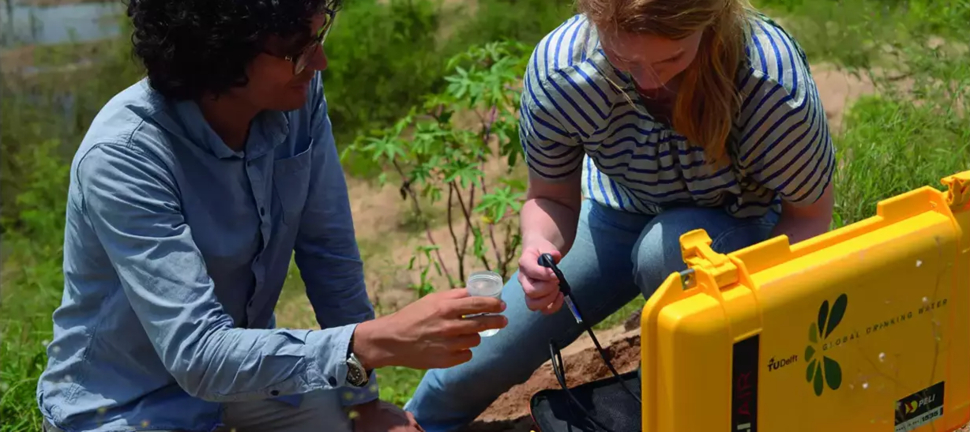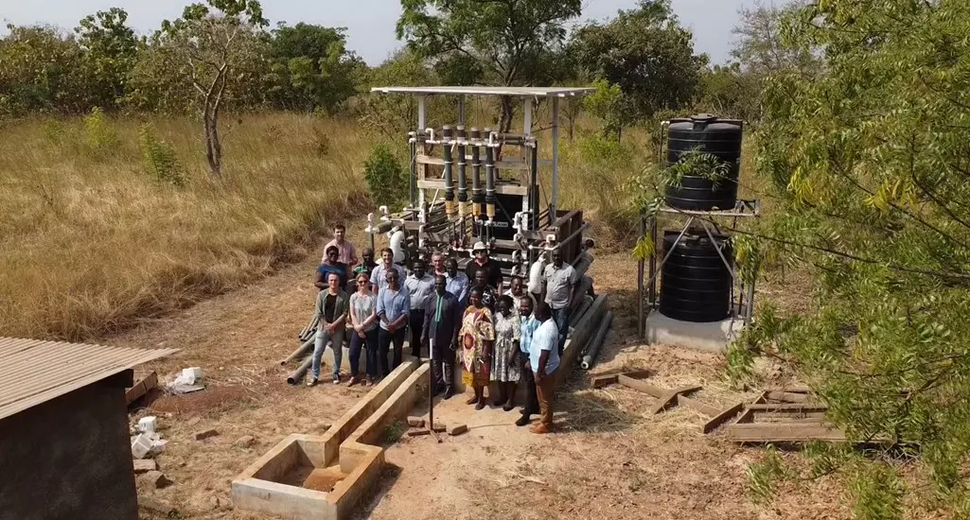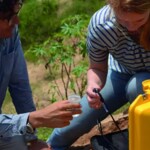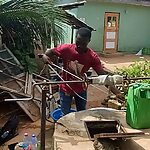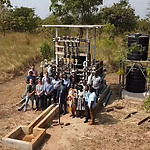Sub-Saharan Africa is a particularly vulnerable region to the negative effects of climate change. These effects are most strongly felt through the global water cycle in the form of changing precipitation patterns, intensity and extremes of weather; widespread melting of snow and ice; increasing atmospheric water vapour; increasing evaporation; and changes in soil moisture and runoff. The climate effects on the supply, quality and distribution of water has innumerable knock-on effects on many spheres of human endeavour such as food production, industry, energy, economic growth and social development. Water is the thread that ties all the sustainable development goals together. Within this changing water landscape 33 development corridors (large transport infrastructure projects) have been built and or are planned to facilitate social and economic growth across Sub-Saharan Africa. The corridors span 38 countries and contain transport infrastructure (road networks, railways, pipelines and ports) over 53000 kms long. These corridors have the potential to bring economic opportunity, growth and social development to marginalized communities and regions. However, the benefits of development corridors create challenges for water and can contribute to increasing water stress by increasing demand through urbanization, economic growth and population growth as well as decreasing supply by polluting existing water sources, changing land use patterns and depleting existing water sources.
Traditionally, water related projects in Sub-Saharan Africa have sought to address very specific problems. For example, if a farmer does not have access to sufficient water for his/her crops a well can be dug and a pump installed. This approach does not take into account the complex linkages that water has with food, energy, climate and human societies which often results in unintended negative consequences. We want to pioneer a new approach. Instead of asking how can we fix an individual, specific water issue we ask how can we use water as an integrated instrument to achieve a better society as a whole? This approach may seem obvious to us as water managers yet investing in water infrastructure and planning for better water management is seldom incorporated into the development corridors or is seen as an entirely separate issue. This thinking needs to change.
How can TU Delft pioneer a new approach to sustainable water management and align with the objectives of development corridors to ensure that economic growth and human development in Sub-Saharan Africa is not hampered by lack of access to safe, inclusive and affordable water, whilst concurrently addressing climate change adaption and mitigation for water in support of the Sustainable Development Goals? We argue that water corridors should be created that support the Sub-Saharan Africa development corridors. A water corridor is not necessarily a physical pipeline. Investments and development of water infrastructure will necessarily be part of the work that a water corridor does, but it is not what a water corridor is. Rather, the African Water Corridor is a carrier for sustainable development and the spread of research, innovative technologies, policies, practices, knowledge and businesses to ensure that water is accessible and affordable to all.
As a first step, three Sub-Saharan development corridors have been selected: The Maputo Corridor (Mozambique), Northern Corridor (Uganda) and Tema-Ouagadougou Corridor (Ghana). These locations were selected due to the strength of our networks there and our long history of working in these areas as well as the expected urbanisation and growth that will occur due to the development corridors.
The approach is research and technology development led, with a focus on multi-sectoral and multi-disciplinary approaches and in each location aims to grasp, plug and seal water issues along the corridors:
- Grasp: Assess the water landscape and stakeholders through data enrichment in a data poor environment with innovative sensing methods (citizen science, novel/robust sensors, remote sensing) to quickly map the gap between (future) water demands and available resources.
- Plug: Research, develop and deploy innovative technologies, strategies and policies through co-creation and action research projects to meet current and future water demands; by cleverly utilising both locally and regionally available resources (including “new” sources, like wastewater, sea water and brackish groundwater)
- Seal: Develop – with engineering partners – corridor wide infrastructure blueprints and strategies to secure water for coming generations by spreading research, innovative technologies, policies, practices, knowledge and businesses across the corridor and beyond.
This is carried out within the framework of building strong working relationships with (inter)national partners and investing in local knowledge capacity building as well as striving to produce technologies, strategies and policies that are eventually self-sufficient and locally owned.
